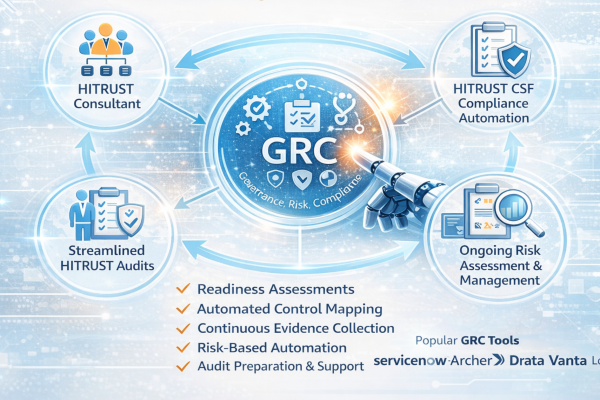Cloud Infrastructure Services for Small Businesses: A Comprehensive Guide
In today’s digital age, small businesses must leverage the right technologies to remain competitive. One of the most impactful technological shifts has been the adoption of cloud computing. Cloud Infrastructure Services offer small businesses a flexible, scalable, and cost-effective way to manage their IT resources. This guide will provide a detailed overview of Cloud Infrastructure Services, their benefits, types, key considerations for small businesses, and how to choose the right service provider.
Understanding Cloud Infrastructure Services
Cloud Infrastructure Services, also known as Infrastructure as a Service (IaaS), is a form of cloud computing that provides virtualized computing resources over the Internet. Instead of investing in expensive on-premises hardware, small businesses can access servers, storage, networking, and other computing resources through the cloud on a pay-as-you-go basis.
These services are hosted by third-party providers and are available to businesses via the Internet. By using Cloud Infrastructure Services in Mohali, small businesses can scale their IT resources up or down based on demand, reducing costs and improving efficiency.
Benefits of Cloud Infrastructure Services for Small Businesses
Cost-Effectiveness:
One of the most significant advantages of Cloud Infrastructure Services is cost savings. Small businesses no longer need to invest in expensive hardware, software, or maintenance. With cloud services, businesses only pay for the resources they use, allowing for better budgeting and cost management.
Scalability:
As a small business grows, its IT needs will also change. Cloud Infrastructure Services provide the flexibility to scale resources up or down based on demand. This scalability ensures that businesses can adapt quickly to changing market conditions without the need for significant upfront investments.
Accessibility:
Cloud Infrastructure Services allow businesses to access their data and applications from anywhere with an internet connection. This accessibility is particularly beneficial for remote work, enabling employees to collaborate and work efficiently, regardless of their location.
Improved Performance and Reliability:
Cloud providers invest in cutting-edge technology and infrastructure to ensure high performance and reliability. With Cloud Infrastructure Services, small businesses can benefit from fast load times, reduced downtime, and better overall performance.
Enhanced Security:
Security is a top concern for small businesses. Cloud Infrastructure Services offer advanced security features, including encryption, firewalls, and regular updates, to protect sensitive data. Additionally, cloud providers often comply with industry standards and regulations, ensuring that businesses meet compliance requirements.
Disaster Recovery and Backup:
Cloud Infrastructure Services include built-in disaster recovery and backup solutions. This means that even in the event of a system failure or data loss, businesses can quickly restore their operations and minimize downtime.
Environmentally Friendly:
By using shared resources in the cloud, businesses reduce their carbon footprint. Cloud providers optimize energy usage across their data centers, making cloud computing a more sustainable option.
Types of Cloud Infrastructure Services
Small businesses have various options when it comes to Cloud Infrastructure Services. Understanding the different types can help in selecting the most suitable one for your business needs:
1. Public Cloud:
In a public cloud, the infrastructure is shared among multiple users (tenants). This type of cloud is highly scalable and cost-effective, making it ideal for small businesses with limited budgets. Public cloud services are provided by major players like Amazon Web Services (AWS), Microsoft Azure, and Google Cloud Platform.
2. Private Cloud:
A private cloud is exclusively reserved for one organization, offering enhanced control and security. While it is more expensive than the public cloud, it is suitable for businesses that require higher levels of security and compliance.
3. Hybrid Cloud:
A hybrid cloud combines both public and private clouds, allowing businesses to take advantage of both environments. This approach offers greater flexibility and control, enabling businesses to store sensitive data in a private cloud while using the public cloud for less-critical operations.
4. Multi-Cloud:
In a multi-cloud environment, businesses use services from multiple cloud providers. This strategy helps avoid vendor lock-in, ensures redundancy, and allows businesses to optimize costs by choosing the best services from different providers.
Key Considerations for Small Businesses
Before adopting Cloud Infrastructure Services, small businesses should carefully consider the following factors:
Business Needs and Goals:
Identify your business’s specific needs and goals.What goals do you aim to accomplish by transitioning to the cloud? Whether it’s reducing costs, improving scalability, or enhancing security, understanding your objectives will guide you in choosing the right cloud service.
Budget:
While Cloud Infrastructure Services are generally cost-effective, it’s essential to establish a clear budget. Consider not only the cost of the services but also any potential hidden costs, such as data transfer fees or additional support services.
Security and Compliance:
Data security is a top priority for every business. Ensure that the cloud provider you choose offers robust security features and complies with industry regulations relevant to your business, such as GDPR, HIPAA, or PCI DSS.
Performance and Reliability:
The performance and reliability of Cloud Infrastructure Services are crucial for business continuity. Research the service level agreements (SLAs) provided by different providers, focusing on uptime guarantees and support response times.
Scalability and Flexibility:
As your business expands, your IT requirements will also increase. Choose a cloud service that can easily scale with your business and offer the flexibility to adjust resources as required.
Integration with Existing Systems:
Consider how the cloud infrastructure will integrate with your existing systems. Ensure that the cloud service can work seamlessly with your current applications and processes.
Vendor Reputation and Support:
The reputation of the cloud provider is important. Seek out providers with a proven track record and favorable customer reviews. Additionally, ensure that they offer reliable customer support, especially if you’re new to cloud computing.
How to Select the Best Cloud Infrastructure Service Provider
Selecting the right Cloud Infrastructure Service provider is a critical decision for small businesses. Here are some steps to help you make a well-informed decision:
Assess Your Requirements:
Begin by assessing your business’s IT requirements. Determine the type of applications and workloads you’ll be running in the cloud, the amount of storage you need, and the level of security required.
Compare Providers:
Research and compare the leading cloud providers. Consider factors such as pricing, performance, security features, scalability options, and customer support. Some of the top providers for small businesses include Amazon Web Services (AWS), Microsoft Azure, and Google Cloud Platform.
Evaluate SLAs:
Review the Service Level Agreements (SLAs) offered by each provider. Pay close attention to uptime guarantees, support response times, and any penalties for service interruptions.
Consider Total Cost of Ownership (TCO):
While the pay-as-you-go model is appealing, consider the total cost of ownership over time. Factor in any additional costs, such as data transfer fees, support services, and potential migration costs.
Test the Service:
Many cloud providers offer free trials or low-cost tiers. Utilize these options to test the service before committing to a long-term contract. This will give you a better understanding of the platform’s performance and usability.
Check for Compliance:
Ensure that the provider complies with any industry-specific regulations that apply to your business. This is particularly important if you handle sensitive data.
Seek Expert Advice:
If you’re unsure about which provider to choose, consider consulting with a cloud expert or IT consultant. They can help you navigate the options and make the best choice for your business.
Common Use Cases for Cloud Infrastructure Services in Small Businesses
Cloud Infrastructure Services offer a wide range of use cases that can benefit small businesses. Here are some common scenarios where cloud infrastructure can make a significant impact:
Web Hosting:
Cloud infrastructure is ideal for hosting websites and web applications. Small businesses can quickly deploy, manage, and scale their websites without worrying about server maintenance.
Data Storage and Backup:
Cloud storage solutions provide secure and scalable storage options for businesses. Small businesses can store large volumes of data and set up automatic backups to ensure data integrity and availability.
Business Continuity and Disaster Recovery:
Cloud-based disaster recovery solutions allow businesses to quickly recover from unexpected events, such as hardware failures or natural disasters. With automated failover and backup capabilities, businesses can minimize downtime.
Application Development and Testing:
Developers can use cloud infrastructure to create and test applications in a flexible environment. The ability to scale resources up and down makes it easy to manage development workloads efficiently.
Collaboration and Remote Work:
Cloud-based collaboration tools enable teams to work together in real-time, regardless of their location. This is particularly valuable for businesses with remote employees or multiple office locations.
E-commerce Platforms:
Small businesses operating e-commerce platforms can benefit from the scalability and performance of cloud infrastructure. During peak shopping seasons, cloud services can handle increased traffic without compromising speed or reliability.
Analytics and Big Data:
Cloud infrastructure allows small businesses to leverage advanced analytics and big data tools. By analyzing customer data, businesses can gain insights that drive better decision-making and improve customer experiences.
Conclusion
Cloud Infrastructure Services have become an essential component for small businesses looking to thrive in today’s competitive landscape. By offering cost-effective, scalable, and secure solutions, cloud infrastructure enables businesses to focus on growth and innovation without the burden of managing complex IT systems.
Author







